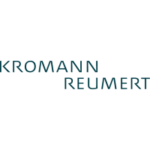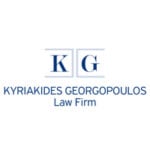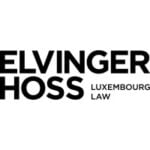-
Climate – the law governing operations that emit Greenhouse Gases (e.g. carbon trading) is addressed by Environment and Climate Change international guides, in respect of ESG: a. Is there any statutory duty to implement net zero business strategies; b. Is the use of carbon offsets to meet net zero or carbon neutral commitments regulated; c. Have there been any test cases brought against companies for undeliverable net zero strategies; d. Have there been any test cases brought against companies for their proportionate contribution to global levels of greenhouse gases (GHGs)?
a. Is there any statutory duty to implement net zero business strategies;
The enactment of the Swiss Climate and Innovation Act (CIA) and its implementing regulation, the Climate Protection Ordinance (CPO), effective from 1 January 2025, marks a significant shift in Switzerland’s approach to corporate climate responsibility. The legislation sets a legally binding target for the country to achieve net-zero greenhouse gas emissions by 2050, with an emphasis on collective efforts across the private sector. While not all companies are individually bound by law to reach net-zero, the framework applies broadly, regardless of size or regulatory status, with specific obligations and incentives aimed at driving reductions, particularly in Scope 1 (direct) and Scope 2 (indirect energy-related) emissions. Scope 3 emissions, covering value chain impacts, are increasingly recognized and may be incorporated into future guidance or reporting expectations.
To support this transition, the CIA and CPO encourage the development of detailed climate transition plans outlining interim targets in five-year increments. While not legally mandated, these plans are strongly recommended, particularly for companies seeking access to federal support programs. Financial incentives and funding mechanisms have been introduced to promote the adoption of innovative low-carbon technologies and to facilitate the implementation of emission reduction strategies.
Furthermore, the revised CO2 Act, approved in March 2024 and effective as of 1 January 2025, introduces key amendments to align Switzerland’s climate strategy more closely with the Paris Agreement and reinforce the national pathway to net-zero emissions by 2050. The revised legislation sets more ambitious GHG reduction targets, raises the maximum CO2 levy on fossil fuels, and expands the Emissions Trading System (ETS) to additional sectors such as aviation and waste incineration, while enhancing linkage with the EU ETS. The Act imposes binding CO2 reduction obligations on fossil fuel importers, requiring them to offset a defined share of emissions. Companies may apply for partial exemptions from the CO2 levy by entering into long-term target agreements with the federal government, committing to verifiable and binding emission reduction pathways.
A further cornerstone for climate-related business strategies is the Climate Reporting Ordinance (CRO). In force since January 2024, it mandates companies to disclose climate-related financial risks and opportunities in line with the Task Force on Climate-related Financial Disclosures (TCFD) framework. Applicable to public companies, banks, and insurance firms with more than 500 full-time equivalent positions on annual average in two successive financial years (FTEs), over CHF 20 million in total assets, or CHF 40 million in turnover, the CRO requires annual reporting on (i) Governance and risk management of climate-related issues; (ii) Climate-related financial risks and impacts on business models, strategy, and planning; (iii) GHG emissions (Scopes 1, 2, and 3); and (iv) Reduction targets and transition plans consistent with the Paris Agreement. Reports must be publicly accessible, verified internally by the board, and integrated into the company’s annual reporting cycle. A revised version of the CRO is currently being consulted and is expected to enter into force on January 1, 2026 (see response to question 22 below).
While the evolving Swiss climate-related regulations strive to align with international standards, particularly those of the EU, the Swiss approach is characterized by principle-based regulation and a strong emphasis on market-driven initiatives and self-regulation.
b. Is the use of carbon offsets to meet net zero or carbon neutral commitments regulated;
The revised CO2 Act which came into force on 1 January 2025 continues to mandate that producers and importers of fossil fuels offset a portion of their CO2 emissions through climate protection projects. These projects can generate certificates representing emission reductions or improvements in the carbon sink effect, which may then be surrendered to fulfill the offsetting obligation. The CO2 Ordinance outlines the specific requirements for these emission reduction projects. Similar to international initiatives under the Clean Development Mechanism (CDM) of the Kyoto Protocol, compensation projects in Switzerland must adhere to a structured procedure. If the projects meet the established criteria, they are eligible to generate both national and international certificates, which can be used for emissions offsetting.
Companies and individuals failing to meet their offset obligations must pay a penalty for each uncompensated ton of CO2. Additionally, they are required to surrender emission allowances or international certificates to the Swiss federal government, ensuring compliance with the regulatory framework.
In addition, the Swiss Emissions Trading Scheme (ETS) imposes a statutory obligation on operators of high-emission installations to participate in emissions trading. This mechanism is designed to cap emissions across sectors and incentivize reductions through market-based mechanisms, aligning with Switzerland’s broader climate objectives to meet its international commitments.
c. Have there been any test cases brought against companies for undeliverable net zero strategies;
No test cases for undeliverable net-zero strategies have yet emerged in Switzerland.
d. Have there been any test cases brought against companies for their proportionate contribution to global levels of greenhouse gases (GHGs)?
There is currently no overarching legal prohibition against companies emitting greenhouse gases (GHGs), and as such, no test cases have been brought against companies specifically for their proportionate contribution to global GHG emissions. However, there have been notable legal proceedings involving environmental and climate-related issues, particularly in relation to companies’ misleading claims or actions concerning their environmental impact.
One eminent case involved the emissions manipulation scandal of Volkswagen. A consumer group filed a class action against Volkswagen and the Swiss importer AMAG, accusing AMAG of misleading buyers and violating Swiss law in connection with emissions manipulations. The Zurich Commercial Court dismissed the collective action due to lack of standing of the consumer group, a decision later confirmed by the Federal Supreme Court.
Additionally, fishermen from the disappearing Indonesian island Pari filed a lawsuit with a Swiss cantonal court against the Swiss building materials company Holcim, claiming the company’s contribution to global warming violated their personality rights. This case is still pending.
The association KlimaSeniorinnen Schweiz, which advocates for climate protection, sued the Swiss government for its failure to take adequate climate protection measures. Swiss courts dismissed the case, but the ECHR ruled in favor of the association on 9 April 2024, stating that Switzerland violated human rights by not adequately protecting the climate. This case may set a precedent for human rights arguments being used in future litigation also against companies, potentially influencing climate-related legal actions.
Similarly, the complaint filed by Swiss farmers, winegrowers, market gardeners, and fruit growers against the Swiss government in March 2024 may affect policies vis-à-vis private companies. The claimants demanded that the government take further actions to meet its national and international commitments to reduce GHG emissions. Depending on the government’s response, the case may progress to the Federal Administrative Court, Federal Court, or even the European Court of Human Rights (ECHR).
-
Biodiversity – are new projects required to demonstrate biodiversity net gain to receive development consent?
In Switzerland, there is currently no general legal requirement that new projects must demonstrate a net gain in biodiversity to receive development consent. However, various legal provisions at the federal, cantonal, and municipal levels aim to protect indigenous flora, fauna, biological diversity, and natural habitats. These are found in laws such as the Federal Act on the Protection of Nature and Cultural Heritage, the Federal Act on the Protection of the Environment (EPA), the Federal Act on Forests, and the Federal Act on Water Protection (WPA), along with their respective ordinances. These provisions and obligations must be adhered to in the planning and implementation of projects.
The EPA, for example, requires an environmental impact assessment (EIA) for projects likely to significantly affect the environment. This assessment must examine the project’s compatibility with environmental provisions, including those related to nature, landscape, water, forest, and wildlife protection. Over 70 types of facilities, including those in transport, energy, waste disposal, tourism, industry, and more, are subject to this obligation if they exceed certain surface areas or thresholds.
While biodiversity net gain is not explicitly required, the revised EPA approved by the Federal Parliament in 2024 emphasizes sustainability in construction. It allows the Federal Council to set requirements for the use of environmentally friendly materials, recycling, and resource-efficient practices in construction, including the reversibility of structures. The Confederation also commits to adopting these principles in its own projects.
In addition, private certification systems like SNBS or Minergie, although not directly related to biodiversity net gain, promote environmentally responsible practices. These systems encourage ecological landscaping and sustainable construction methods, which indirectly contribute to biodiversity conservation. Thus, while demonstrating biodiversity net gain is not mandated, adherence to these standards can enhance ecological aspects of a development project, potentially influencing its approval process.
A recent popular initiative on biodiversity, which sought to strengthen the protection of natural habitats and increase funding for biodiversity measures, was rejected by the Swiss electorate in September 2024. Opponents argued that the proposal would have imposed overly strict regulations on land use and agricultural activities.
-
Water – are companies required to report on water usage?
Switzerland does not impose a general obligation on companies to report their water usage. However, certain legal provisions indirectly mandate disclosure when water consumption is a material environmental factor:
- Cantonal Oversight (Art. 43 para. 1 of the Federal Act on Forests, and the Federal Act on Water Protection, WPA): cantons are responsible for ensuring sustainable groundwater use, but companies are not explicitly required to report their water consumption to authorities.
- Corporate Sustainability Reporting (Art. 964a et seqq. of the Swiss Code of Obligations, CO): large Swiss companies (listed entities, banks, and insurers meeting financial thresholds) must disclose environmental impacts in their annual sustainability reports. While water usage is not explicitly listed, businesses for which water is a material factor must include relevant disclosures.
- Ordinance on Climate Disclosures (in force since January 1, 2024): expanding on the disclosure obligations pursuant to the CO, this ordinance aligns with TCFD recommendations, requiring affected companies to report climate-related risks and impacts. If water usage is a material environmental concern, companies are expected to integrate it into their disclosures.
In practice, many Swiss companies measure and disclose water consumption as part of ESG reporting, which mirrors investor expectations and sustainability commitments. While reporting is not universally mandated, companies with material water footprints must proactively include this data to ensure compliance and enhance corporate sustainability credentials.
-
Forever chemicals – have there been any test cases brought against companies for product liability or pollution of the environment related to forever chemicals such as Perfluoroalkyl and Polyfluoroalkyl Substances (PFAS)?
In Switzerland, regulatory measures concerning per- and polyfluoroalkyl substances (PFAS) have been progressively aligned with European Union standards. Since February 1, 2024, Switzerland has implemented maximum levels for selected PFAS in certain foods of animal origin, mirroring EU legislation on food regulation. On drinking water standards, the Swiss Federal Office for the Environment has announced plans to tighten PFAS limits in drinking water by 2026, aiming to harmonize with EU directives. Additionally, in December 2024, the Federal Council launched a public consultation on amendments to the Ordinance on Risk Reduction related to Chemical Products (ORRChem) to incorporate recent European Union restrictions on PFAS and microplastics. The consultation period ended on March 20, 2025.
As of April 2025, there have been no reported test cases in Switzerland against companies for product liability or environmental pollution related to PFAS. However, PFAS-related lawsuits are on the rise in the U.S. and parts of Europe, primarily involving claims of groundwater and soil contamination, health impacts, and misrepresentation of PFAS risks in consumer products leading to significant settlements and growing regulatory scrutiny and public awareness indicate that litigation may emerge also in Switzerland in the near future.
-
Circularity – a. The law governing the waste hierarchy is addressed by the Environment international guide, in respect of ESG are any duties placed on producers, distributors or retailers of products to ensure levels of recycling and / or incorporate a proportionate amount of recycled materials in product construction? b. Are any duties placed on producers, distributors or retailers of products to handle the end-of-life of the products placed on the market?
a. The law governing the waste hierarchy is addressed by the Environment international guide, in respect of ESG are any duties placed on producers, distributors or retailers of products to ensure levels of recycling and / or incorporate a proportionate amount of recycled materials in product construction?
In Switzerland, the law governing the waste hierarchy is primarily addressed by the Federal Act on the Protection of the Environment (EPA) and related federal ordinances. The EPA sets out the principles for the avoidance, collection, treatment, and recovery of waste, with a focus on minimizing waste production, maximizing recovery, and ensuring that waste is disposed of in an environmentally sound manner. These principles promote a circular economy and the sustainable management of waste. The EPA is complemented by other laws, including the Federal Act on Protection against Dangerous Substances and Preparations, the Ordinance on Beverage Containers (BCO), the Ordinance on the Return, Take-back, and Disposal of Electrical and Electronic Equipment (OREA), and the Ordinance on Soil Damage.
Producers, distributors, and retailers are required to comply with Extended Producer Responsibility (EPR) obligations, which ensure that the producers of products take responsibility for their products’ lifecycle, including collection, recycling, and proper disposal once the products are no longer in use. For instance, the BCO regulates the take-back and recycling of beverage containers, requiring manufacturers and distributors to take back refillable containers and ensure the recycling of non-refillable containers. Similarly, under OREA, producers and distributors of electrical and electronic equipment must take back used items for recycling and proper disposal. Unlike in the EU, EPR in Switzerland is largely implemented through voluntary or sector-led initiatives, supported by legal frameworks. Examples include PET Recycling Switzerland, IGORA for aluminium cans, and INOBAT for batteries.
Furthermore, the Swiss government has strengthened its waste management framework with the revision of the EPA, approved on 15 March 2024. The revised provisions include further requirements for product design (service life, reparability) and the obligation of producers and distributors to use packaging made of recyclable materials. In addition, new provisions are to be established by the Federal Council to strengthen innovative, private sector EPR agreements. Producers, importers and eCommerce companies may in the future be subject to a recycling contribution. In addition, the revised law stipulates that certain materials must be recycled, in particular certain metals, excavated materials and compostable waste. The date of the entering into force of the revised EPA is not yet known.
b. Are any duties placed on producers, distributors or retailers of products to handle the end-of-life of the products placed on the market?
In Switzerland, producers, distributors, and retailers are subject to specific obligations regarding the end-of-life management of products they place on the market. While Switzerland’s approach to product end-of-life management is more fragmented as compared to the EU’s comprehensive Extended Producer Responsibility (EPR) framework, it imposes specific duties on producers, distributors, and retailers for particular products. These obligations are delineated in the Federal Act on the Protection of the Environment (Environmental Protection Act, EPA) and its associated ordinances (Ordinance on the Return, Taking Back and Disposal of Electrical and Electronic Equipment [ORDEE] that came into effect on 1 January 2022 and Ordinance on Beverage Containers [BCO] that came into effect on 1 January 2001).
Article 2 of the EPA establishes the “polluter pays” principle, making those who produce, distribute, or use products responsible for covering the costs of waste disposal (Prepaid Disposal Fees, PDF). Producers and importers may be required to pay fees that finance the disposal of certain waste products. For example, glass beverage containers are subject to such fees, ensuring that the costs of waste management are internalized by those placing the products on the market. Specific products are subject to take-back obligations. For example, regarding electronic appliances, the Ordinance on the Return, Taking Back and Disposal of Electrical and Electronic Equipment (ORDEE) mandates that retailers, manufacturers, and importers of electronic appliances take back used devices of the same type as those they offer and ensure their proper disposal. Under the EPA, producers and retailers are obliged to inform consumers about appropriate disposal methods for their products. This requirement aims to promote responsible consumer behavior and effective waste segregation, contributing to efficient recycling processes.
As of January 1, 2025, amendments to the Environmental Protection Act (EPA) have been enacted to strengthen the circular economy in Switzerland. These changes prioritize recycling over incineration and aim to close material cycles, thereby enhancing sustainable product management.
-
Plastics – what laws are in place to deter and punish plastic pollution (e.g. producer responsibility, plastic tax or bans on certain plastic uses)?
Switzerland currently lacks national regulations that explicitly restrict plastic consumption, unlike the EU, and the introduction of a plastic tax was considered by the Federal Parliament in 2020 but not pursued. However, the Federal Act on Environmental Protection (EPA) provides the basis for the Federal Council to introduce a ban on single-use plastics. As of now, the Federal Council has not exercised its power to issue ordinances on this matter, leaving cantons to issue their own regulations within the framework of the EPA.
For example, the canton of Geneva has adopted a ban on the use, provision, or sale of single-use plastic products by restaurants, take-away food services, company canteens, meal delivery services, catering services, and retail outlets for ready-to-eat food, as well as at public events. This provision entered into force on 1 January 2025.
Additionally, the EPA sets the framework for extended producer responsibility (EPR) regulations, which require producers, importers, and distributors of plastic products to ensure they are responsible for the take-back, recycling, or safe disposal of their products. Furthermore, Switzerland is actively participating in the UNEA’s international negotiations on plastic pollution, aiming to reach a global agreement that reduces plastic production and pollution by 2040. In this context, Switzerland is a member of the High Ambition Coalition (HAC), advocating for a strong global response to plastic pollution.
Switzerland is also a signatory to the Basel Convention on the control of hazardous waste, and in 2019, it endorsed regulations to control mixed plastic waste movements across borders, requiring prior consent from all countries involved in the transboundary transport of plastic waste.
-
Equality Diversity and Inclusion (EDI) – what legal obligations are placed on an employer to ensure equality, diversity and inclusion in the workplace?
In Switzerland, the legal obligations on employers to ensure equality, diversity, and inclusion (EDI) in the workplace are primarily found in the Swiss Federal Constitution (FC), the Gender Equality Act (GEA), and the Disability Discrimination Act (DDA).
According to Article 8 of the Swiss Federal Constitution (FC), no person shall be discriminated against based on origin, race, gender, age, language, social position, lifestyle, religious, ideological, or political convictions, or due to a physical, mental, or psychological disability. Furthermore, men and women are entitled to equal pay for equal work (Art. 8 para. 2 and 3 FC). This constitutional right to equal pay can be enforced directly by employees in court.
Under the GEA, employers must ensure that no employee is discriminated against based on their sex, including indirect discrimination related to marital status, family situation, or pregnancy. Employers are also required to prevent any form of sexual harassment or behavior based on sex that adversely affects an individual’s dignity in the workplace. The GEA applies to all employment relationships under both private and public law, and failure to comply may result in legal claims for discrimination.
Additionally, the DDA aims to enhance the participation of people with disabilities in social and professional life. While its obligations apply primarily to employers subject to federal public law, it sets out measures for accessibility and accommodations at the workplace, particularly in public sector employment. For private employers, the DDA does not impose direct obligations unless they operate in specific sectors such as public transport or facilities.
The revised DDA proposal presented in December 2023 extends its provisions, imposing a duty on all employers and service providers to take reasonable precautions to eliminate discrimination and provide suitable measures for employees with disabilities, such as flexible working hours or accessible services.
Concerning corporate governance, the Swiss Code of Obligations (CO) mandates that large listed companies domiciled in Switzerland must ensure gender representation on their boards. Specifically, at least 30% of the board of directors and 20% of the management board must be from each gender. If these thresholds are not met, companies must explain the reasons and present plans for improving gender balance. This requirement applies to both Swiss companies and foreign companies listed on the SIX Swiss Exchange, with companies having up to five years to meet the board of directors’ quota and ten years for the management board.
-
Workplace welfare – the law governing health and safety at work is addressed in the Health and Safety international guide, in respect of ESG are there any legal duties on employers to treat employees fairly and with respect?
In Switzerland, employers have a broad duty of care under the Swiss Code of Obligations (CO), which mandates fair and respectful treatment of employees. This includes protecting their personality rights, physical and mental integrity, personal reputation, and freedom of speech. Employers must avoid actions that interfere with an employee’s dignity and ensure a healthy work environment that does not harm their well-being. This obligation also covers preventing workplace bullying and ensuring mental health protection, in line with the broader duty to safeguard employees’ physical and psychological health.
The Swiss Labour Act (LA) (cf. article 6 sec. 1) and the Labour Ordinance No. 3 on Health Protection further expand these duties by requiring employers to take comprehensive measures to protect employees’ health, including limits on surveillance and protections against mobbing. Breaches of these laws can lead to criminal sanctions, including fines. These legal obligations align with ESG principles, particularly the social aspect of fair treatment, health, and safety in the workplace.
-
Living wage – the law governing employment rights is addressed in the Employment and Labour international guide, in respect of ESG is there a legal requirement to pay a wage that is high enough to maintain a normal standard of living?
In Switzerland, there is no statutory minimum wage at the national level. According to the Swiss Code of Obligations (CO), wages must be agreed upon by the parties, customary in the industry, or set by a collective or standard employment contract. Various trade unions and employers’ associations have established minimum wages in such contracts. Some of these agreements apply universally across entire sectors or professions (collective agreements), while others only bind companies that have signed them. A comprehensive overview of the collective and standard employment contracts currently in force can be found on the website of the State Secretariat for Economic Affairs (SECO).
In addition to collective agreements, Swiss cantons have the authority to impose minimum wages. As of 2024, five cantons — Neuchâtel, Jura, Geneva, Ticino, and Basel-Stadt — have introduced minimum wage laws through popular initiatives. These cantonal minimum wages vary, with Geneva’s being the highest at CHF 24.48 per hour as of January 2025, reflecting adjustments for inflation and living costs. Other cantonal wages range between CHF 19.00 and CHF 21.70 per hour.
In 2024, the Canton of Valais has approved a popular initiative establishing a minimum hourly wage of CHF 22. In the cantons of Vaud and Fribourg, initiatives aimed at introducing a statutory minimum wage are currently in progress. Conversely, the cantons of Basel-Country and Solothurn have rejected proposals to implement a minimum wage for 2025.
In late 2024 the Administrative Court of the Canton of Zurich ruled that the introduction of municipal minimum wages in Zurich and Winterthur was illegal (cf. AN.2024.00001 and AN.2024.00002 dated 17.09.2024, published on 29.11.2024). The court found that municipalities lack the legislative authority to regulate employment conditions, which fall under federal or cantonal jurisdiction. This decision overturns the minimum wages approved by popular votes in these cities in 2023 and sets a precedent for potential legal disputes in other municipalities considering similar initiatives. Zurich and Winterthur authorities have appealed against this ruling to the Federal Supreme Court, but for the time being, the ruling limits the introduction of new local municipal wage regulations in Switzerland.
-
Human rights in the supply chain – in relation to adverse impact on human rights or the environment in the supply chain: a. Are there any statutory duties to perform due diligence; b. Have there been any test cases brought against companies?
a. Are there any statutory duties to perform due diligence;
Pursuant to Articles 964a et seq. of the Swiss Code of Obligations (CO), large companies with registered office in Switzerland are required to publish an annual report addressing key environmental and human rights issues. This obligation applies to companies that meet specific size criteria – namely, those with at least 500 employees and either a consolidated balance sheet total of CHF 20 million or consolidated revenues of CHF 40 million – and that are either listed on a stock exchange or subject to oversight by FINMA. Failure to comply constitutes a criminal offence and may result in fines.
According to the SIX Swiss Exchange listing rules, foreign companies with listed shares on SIX are also required to report on the topics covered under Articles 964a et seq. CO, unless they already publish a sustainability report which meets equivalent foreign legal standards.
The sustainability report must assess both the company’s environmental and societal impact and describe the due diligence processes in place. Where relevant and appropriate, the report should also include information on business partners and supply chains. The legislation refers to internationally recognised frameworks, such as the OECD Guidelines for Multinational Enterprises, as a reference point. These provisions entered into force on 1 January 2022 and became applicable from 1 January 2023, meaning the first reports were required for the financial year 2023.
In addition, Articles 964j et seq. CO impose specific due diligence and reporting obligations on Swiss-based companies that either import or process particular metals or minerals from conflict-affected regions or offer goods suspected of being produced with child labour. To support the implementation of these obligations, the Swiss Federal Council issued an ordinance titled the Ordinance on Due Diligence and Transparency in relation to Minerals and Metals from Conflict-Affected Areas and Child Labour. This ordinance outlines detailed duties and grants exemptions for minor quantities and for SMEs, particularly in relation to child labour due diligence requirements. The definition of child labour is based on conventions adopted by the International Labour Organization (ILO). These provisions also took effect on 1 January 2022 and became binding from 1 January 2023.
Notably, the law does not prohibit the use of conflict minerals or goods linked to child labour outright, but rather requires companies to establish and maintain an effective management system to identify, assess, and mitigate such risks within their supply chains.
b. Have there been any test cases brought against companies?
To date, no landmark court decisions have been issued concerning the new obligations on environmental and human rights-related disclosure and due diligence.
Nevertheless, a civil case brought by fishermen from the sinking Indonesian island of Pari is currently pending before a cantonal court in Switzerland. The lawsuit targets Holcim, a Swiss-based global construction materials and aggregates company, for its alleged role in contributing to climate change. The plaintiffs argue that their personality rights, specifically the rights to life, physical integrity, and economic development, have been violated.
Another high-profile case, Verein KlimaSeniorinnen Schweiz and Others v. Switzerland, was adjudicated by the European Court of Human Rights (ECHR) in April 2024, with a ruling in favour of the plaintiffs. Although this case was directed at the Swiss government rather than a private entity, the ECHR drew a connection between international climate change obligations and human rights protections. This development may influence how Swiss civil courts interpret personality and property rights in future cases brought against corporations.
In addition, a liability case filed in the district court in the Canton of Basel-Stadt in April 2025 concerns allegations of poisoning caused by pesticides sold by Syngenta to smallholder farmers in India’s Yavamal district. The court has not yet delivered a verdict. Syngenta has consistently denied responsibility, stating that there is no evidence linking its product to the alleged poisonings.
-
Responsibility for host communities, environment and indigenous populations – in relation to adverse impact on human rights or the environment in host communities: a. Are there any statutory duties to perform due diligence; b. Have there been any test cases brought against companies?
a. Are there any statutory duties to perform due diligence;
There are no particular Swiss legal provisions referring to host communities and indigenous populations.
b. Have there been any test cases brought against companies?
In 2020 legal actions were brought by local communities in Peru, involving indigenous populations, against the Swiss multinational company Glencore, accusing it of environmental harm and human rights violations related to its mining operations with significant impact on their livelihoods, particularly in relation to traditional farming and access to clean water. The plaintiffs argue that the company has neglected to address these issues despite long-standing complaints. As of April 2025, the case remains unresolved, with local communities pursuing legal action in both Switzerland and Peru, demanding accountability and compensation. Glencore denies any wrongdoing, claiming it complies with local regulations. This case is significant in the Swiss legal context, as it questions the accountability of Swiss-based multinational corporations for environmental and human rights issues abroad. It also holds broader implications for Environmental, Social, and Governance (ESG) practices, testing the extent of Swiss corporate responsibility and potentially influencing how Swiss companies will be held accountable for activities outside Switzerland, particularly as ESG regulations continue to evolve.
Syngenta, a Swiss agrochemical company, has come under scrutiny for the environmental impact of its pesticides, especially in Brazil. Local communities and environmental organizations have raised concerns about pesticide-induced water contamination, which is said to harm ecosystems and human health. Despite these concerns and ongoing investigations, no significant lawsuits have been filed against Syngenta in Brazil specifically for water pollution related to its products.
The multinational Swiss food and drink processing company Nestlé has faced controversies related to water extraction and pollution in several regions, including California and Pakistan. In California, the company has been criticized for extracting groundwater during drought periods. Nestlé stated that it operates in strict accordance with all federal and state public health regulations, In Pakistan, Nestlé’s water bottling operations have raised questions about their effects on local water supplies. Nestlé Pakistan responded by entering into a Memorandum of Understanding (MoU) with WWF-Pakistan to promote sustainable water use and stewardship. Although Nestlé has encountered public and regulatory pressure in both cases, no major lawsuits specifically addressing water pollution have been filed.
-
Have the Advertising authorities required any businesses to remove adverts for unsubstantiated sustainability claims?
The Federal Act against Unfair Competition (UCA) provides a framework for addressing deceptive practices in green marketing, particularly those involving unsupported climate-related claims. Under this law, the State Secretariat for Economic Affairs (SECO) has the authority to initiate civil lawsuits and file criminal complaints against violations of the UCA. Although several cases of alleged greenwashing are currently under SECO’s review, no legal proceedings have been made public thus far.
In contrast, the Swiss Fairness Commission (Schweizerische Lauterkeitskommission, SLK), an industry-supported, non-governmental organization that investigates cases of unfair competition and provides non-binding yet widely acknowledged rulings, has played a prominent role in addressing and denouncing instances of greenwashing in advertising. The published decisions of the SKL reflect increasing scrutiny of unverified ESG claims, which can lead to significant reputational risks for the entities involved. Furthermore, as the SKL evaluates whether the Unfair Competition Statute (UCS) has been violated, its findings may serve as the foundation for civil lawsuits or criminal complaints.
A landmark case involved FIFA, which advertised the 2022 World Cup in Qatar as “climate neutral.” In June 2023, following coordinated complaints from multiple European countries and NGOs, the SLK ruled that FIFA’s claims were misleading, lacking sufficient evidence and transparency. FIFA was advised to refrain from making such claims unless they could be properly substantiated.
Similar decisions followed: in one case, a heating oil supplier promoted its heating oil as “climate neutral,” relying on offsetting measures that the SLK deemed insufficiently credible or verifiable. In another, an international baby food producer labelled its products as “climate positive” based on offsetting schemes. In both instances, the SLK concluded that the companies failed to provide adequate proof and that the advertising was misleading.
-
Have the Competition and Markets authorities taken action, fined or prosecuted any businesses for unsubstantiated sustainability claims relating to products or services?
See answer to question 12.
In the financial sector, FINMA has published its Supervisory Notice 05/2021 against greenwashing in the funds industry, «Preventing and Combating Greenwashing». FINMA provides detailed guidelines to avoid greenwashing namely in terms of public information, organisation and advisory activities at the point of sale. In the same Supervisory Notice, FINMA has defined greenwashing in a quite broad manner and sees indications for greenwashing in cases such as for instance: (i) claims of being sustainable while just meeting legal standards, or (ii) fund documentation of products acclaimed of being sustainable not outlining in detail how the targets are reached or (iii) missing to report on the achievement of the targets later on. Breaches may be sanctioned by FINMA who may, among other measures, issue and publish a statement of breach, claw back profits or impose a professional ban.
-
Have there been any test cases brought against businesses for unsubstantiated enterprise wide sustainability commitments?
See answer to question 12.
-
Is there a statutory duty on directors to oversee environmental and social impacts?
Under the general corporate fiduciary duties of care and loyalty, the members of the board of directors and the management board are personally liable for taking the interests of the shareholders and, according to the prevailing view, the stakeholders into consideration, including environmental and social impacts of the business activity. The business judgment rule as established by in the case law of the Federal Supreme Court protects board and the management from liability in the case of unconflicted and well-informed business decisions.
The CO states a responsibility of the board of directors and the management board of large companies with registered office in Switzerland which are listed on a trading venue or subject to supervision by FINMA to publish an annual sustainability report on material environmental and social issues such as climate, labour and human rights. (cf. question 10/a).
The reporting obligations regarding climate related non-financial matters have been outlined in an ordinance which refers to the recommendations of the Task Force on Climate-related Financial Disclosure (TCFD) in the areas (i) governance, (ii) strategy, (iii) risk management and (iv) metrics and targets. The ordinance follows a comply or explain approach, requiring companies not complying with the TCFD recommendations to establish how they comply with their reporting obligation.
The CO further declares the board of directors and the management board of any company with registered office in Switzerland responsible for the annual report regarding conflict minerals and metals and child labour as well as related due diligence as outlined in the implementing ordinance (art. 964l CO, cf. question 10/a). Furthermore, the CO requires any Swiss company involved in the extraction or minerals, oil or natural gas or in the harvesting of timber in primary forests, to declare in their annual report payments made to governmental bodies (art. 964d et seqq. CO). Breaches of the respective obligations are deemed criminal offences and may incur fines.
-
Have there been any test cases brought against directors for presenting misleading information on environmental and social impact?
No test cases of misleading or omitted sustainability related information exist yet. The obligation of Swiss companies to publish an annual sustainability report applies for the first time to the report regarding the year 2023.
-
Are financial institutions and large or listed corporates required to report against sustainable investment criteria?
Apart from the general sustainability reporting obligation of large companies listed on a trading venue or supervised by FINMA (cf. question 10/a.), there are no further Swiss statutory reporting obligations regarding sustainable investments.
In its Supervisory Notice 05/2021, FINMA requires managements of investment funds promoted as being sustainable to disclose the investment policy and report on the achievement of targets on an ongoing basis.
Moreover, FINMA requires large Banks and insurance companies (supervisory categories 1 and 2) to report on climate risks and their respective risk management. Furthermore, FINMA has issued a the Circular 2026/01 on Nature-related Financial Risks regulating the identification, measurement and management of nature-related risks in general, entering into force for climate-related risks in 2026 and for other risks in 2028. It may be noted that FINMA has no mandate to promote sustainable investments by Swiss financial institutions.
Originally, the Federal Council mandated the State Secretary for International Finance SIF to elaborate a draft regulation against greenwashing by 30 September 2023 and issued guidelines for such regulation. This project was ultimately abandoned as industry associations further developed sector-specific self-regulation against greenwashing along the lines of the guidelines of the Federal Council.
In 2022, the Swiss Bankers Association (SBA) has published its “Guidelines for financial service providers on the integration of ESG preferences and ESG risks into investment advice and portfolio management” and in September 2024, along with other financial industry bodies, introduced self-regulatory measures to prevent greenwashing. These measures include defining sustainable investment objectives, outlining sustainability approaches, ensuring accountability, and conducting independent audits. These self-regulations are set to come into force with transitional periods until 1 January 2027. In 2022, the Asset Management Association Switzerland has released its “Self-regulation on transparency and disclosure for sustainability-related collective assets”. Both bodies of self-regulation are binding for the members of the respective associations and have not been recognized by FINMA as generally binding for the financial sector.
The Federal Department of Finance (FDF) continues to monitor the effectiveness of these frameworks and has reserved the right to pursue formal state regulation, particularly in light of evolving EU legislative developments, including amendments to the Sustainable Finance Disclosure Regulation (SFDR). A reassessment by the FDF is scheduled by the end of 2027.
-
Is there a statutory responsibility on businesses to report on managing climate related financial risks?
Large companies with a registered office in Switzerland, listed on a trading venue, or supervised by FINMA, are required to report on environmental issues. This includes disclosing, among other aspects, due diligence processes, material climate-related risks, their management, measures taken, and key performance indicators (KPIs) in relation to environmental concerns (cf. question 10/a.).
Further updates have been introduced through the Ordinance on Climate Disclosures, which came into force on January 1, 2024. This ordinance mandates large companies, including public companies, banks, and insurance firms, to disclose information on climate-related financial risks and their impact on business strategies, financial planning, and risk management processes. Specifically, companies with 500 or more employees and at least CHF 20 million in total assets or CHF 40 million in turnover must provide such disclosures. These reports must be aligned with TCFD recommendations, which includes describing how companies identify, measure, and address climate-related risks, along with governance structures related to climate issues. Under certain conditions, the company may base its report on other rules than the TCFD recommendations, or, in a “comply or explain” approach, provide a justified explanation why no concept related to climate is pursued.
As mentioned in the response to question 17, FINMA requires large Banks and insurance companies (supervisory categories 1 and 2) to report on climate risks and their respective risk management, and further obligations related to the management of climate related financial risks will apply to all banks and insurance companies in the future.
Furthermore, the Swiss Federal Council has initiated a consultation to amend the Code of Obligations, aimed at expanding the scope of mandatory climate reporting. This consultation is open until March 21, 2025, with the revised regulations anticipated to be enforced by January 1, 2026. If adopted, these amendments will lower the reporting thresholds, affecting a broader range of companies. This will bring Swiss regulations further in line with international standards on climate-related financial disclosures.
-
Is there a statutory responsibility on businesses to report on energy consumption?
In Switzerland, certain companies are required to report on their energy consumption, especially when linked to greenhouse gas emissions. According to article 964b of the Swiss Code of Obligations (CO), large companies with their registered office in Switzerland, listed on a trading venue or supervised by FINMA, are obliged to report on environmental matters, which includes detailing the environmental impacts of their business activities. This includes information on greenhouse gas emissions (cf question 10/a). The Ordinance on Climate Disclosures, which came into force on 1 January 2024, specifies the requirements for reporting on climate-related issues as part of these environmental disclosures. To the extent possible and relevant, this extends to the disclosure of all greenhouse gas emissions related to the company’s operations. This also includes energy consumption.
Additionally, under the CO2 Act, operators of installations and aircraft participating in the Emissions Trading Scheme (ETS) must report their greenhouse gas emissions annually. This requirement is extended to installation operators in certain sectors who can also reclaim the CO2 levy, thus making annual reporting on emissions a necessary compliance step. Again, such reporting includes emissions from energy consumption.
The Federal Energy Act further stipulates that companies involved in manufacturing, importing, circulating, or using energy-consuming installations, vehicles, or appliances must respond to requests from the authorities. Such requests may also refer to energy consumption. The respective companies are obliged to provide the necessary information to the federal authorities for the purpose of preparing and implementing energy policy measures, as well as analyzing their effectiveness. In this context, these companies must grant the authorities access to their installations and provide any requested documentation to ensure compliance with energy regulations.
-
Is there a statutory responsibility on businesses to report on EDI and / or gender pay gaps?
There is no general requirement for Swiss companies to report on Equality, Diversity, and Inclusion (EDI).
As mentioned above, large listed companies are required to report on gender quotas (cf. question 7).
Furthermore, employers with 100 or more employees must conduct an internal equal pay analysis every four years. This analysis must be audited by an independent body, such as an auditor licensed under the Auditor Oversight Act or an organization representing employees under the Employee Participation Act. The analysis must be carried out using a scientific method in compliance with legal standards, and the Swiss federal government offers employers a free tool, “Logib”, to facilitate the process. If an alternative tool is used, employers must demonstrate its scientific and legal validity. Exemptions to this requirement may apply under certain conditions. Upon completing the equal pay analysis and audit, employers are required to inform their employees in writing about the results and conclusions of the audit (the first notification was due by June 30, 2023). For listed companies, the results must also be published in the annex to their annual financial statements. Similarly, public sector employers are obliged to publish the results of their equal pay analysis and audit. However, beyond these publication requirements, there is no obligation to submit the results to any authority, unless specifically required by other laws (such as in public procurement).
-
Is there a statutory responsibility to report on modern day slavery in the supply chain?
As mentioned above, under Articles 964a et seq. of the Swiss Code of Obligations (CO), large companies with their registered office in Switzerland that are listed on a trading venue or subject to FINMA supervision are required to report annually on non-financial matters, including human rights and labor rights. This obligation aligns with Switzerland’s commitment to responsible corporate governance and sustainable business practices.
The scope and interpretation of these reporting duties are informed by European Union legislation and international standards, as the Swiss provisions were modeled on EU frameworks. Consequently, Swiss companies must consider business relationships and supply chain risks in their reporting, insofar as these risks are deemed “relevant and appropriate”—a phrase derived from international best practices on corporate due diligence.
Regarding human rights reporting, the Swiss authorities reference established international conventions. The Federal Department of Justice guidelines of November 19, 2019, specifically cite International Labour Organization (ILO) standards, including the ILO Convention No. 29 on Forced Labour and the ILO Convention No. 105 on the Abolition of Forced Labour.
These conventions, which build on the 1926 Slavery Convention, reinforce Switzerland’s adherence to global anti-slavery and forced labor principles within corporate supply chains. Accordingly, companies must assess and disclose potential risks of human rights violations across their operations and business networks, ensuring alignment with internationally recognized due diligence expectations.
-
Trends and developments – Where do you see the most significant legal developments in ESG in your jurisdiction in the next 12 months? Do you expect a rise in Court disputes or enforcement actions?
The non-governmental Swiss Fairness Commission has been notably active in publicly accusing companies of greenwashing (see response to question 12 above). It remains to be seen whether public authorities — particularly SECO and the criminal prosecutors – will pursue criminal charges.
As of January 1, 2025, a new provision within the Swiss Unfair Competition Act (UCA) came into effect, specifically prohibiting climate-related claims that lack substantiation. Under the UCA, green claims are generally deemed unfair competition if demonstrated to be false or misleading. However, this new provision expands the framework by allowing legal actions against unsubstantiated climate-related claims, regardless of their accuracy. The practical enforcement of this provision, whether through civil or criminal proceedings, remains uncertain at this stage.
In June 2024, the Swiss Federal Council proposed draft legislation broadening the scope of corporate sustainability reporting in line with the European Corporate Sustainability Reporting Directive (CSRD). One key change would be to expand the reporting obligation to all listed as well as FINMA supervised companies and to companies exceeding two of the three following thresholds: 250 full-time equivalents on annual average (FTEs); balance sheet total of CHF 25 million; turnover of CHF 50 million. Additionally, an audit requirement for sustainability reports was proposed. The public consultation revealed a broad demand for simplification.
In December 2024, the Federal Council initiated a public consultation to amend the Climate Reporting Ordinance (CRO). The proposed revisions aim to align the ordinance with recent international developments, including the dissolution of the Task Force on Climate-related Financial Disclosures (TCFD) and the integration of its recommendations into global standards such as the ISSB and the EU’s ESRS. Under the new provisions, companies would be permitted to report in accordance with a respective international standard. Additionally, the amendments introduce minimum requirements for net-zero roadmaps. The consultation concluded on March 21, 2025, and the results are currently under evaluation. The revised ordinance is expected to enter into force on January 1, 2026.
In March 2025, the Federal Council decided to wait for the recent EU proposal regarding the simplification of the regulation. The Swiss Federal Council will decide on the next steps for these reforms after 2026, pending the EU’s progress on simplifications related to climate and sustainability reporting. This timeline highlights Switzerland’s careful approach to ensuring that it does not jeopardize its competitive position while fulfilling its international climate and ESG commitments.
Several public initiatives related to sustainability have been launched and are being launched:
- In February, the Environmental Responsibility Initiative (Umweltverantwortungsinitiative) which aimed to anchor environmental limits in the Swiss Constitution, requiring the country to reduce its ecological footprint to a globally sustainable level, was clearly rejected by the electorate. Proposed measures included stricter rules on CO₂ emissions, limits on resource consumption, and reduced meat production and imports.
- Currently, signatures are being collected for the Responsible Business Initiative 2.0 (Konzernverantwortungsinitiative 2.0), a renewed effort following the narrow failure of the original initiative at the cantonal level in 2020. The new initiative seeks to make international environmental and human rights standards legally binding for large Swiss companies. It proposes that these companies be held liable for violations committed by subsidiaries or controlled entities abroad—bringing Swiss law in line with recent developments in the EU, such as the Corporate Sustainability Due Diligence Directive (CSDDD).
- Furthermore, signatures are currently being collected for the Financial Market Initiative (Finanzplatz-Initiative), a proposed constitutional amendment aimed at aligning Swiss financial flows with the Paris Agreement and international standards related to biodiversity. Initiated by climate advocates and civil society, the proposal seeks legally binding sustainability obligations for financial institutions, including banks, insurers, and pension funds. Key provisions include a prohibition on financing or insurance services that serve to develop and promote new fossil fuel energy sources or to expand the extraction of existing ones, and due diligence obligations regarding financed emissions. The initiative also proposes the creation of an independent supervisory authority with powers to enforce compliance, and impose sanctions. If the required number of signatures is collected, the initiative will proceed to a national referendum.
Switzerland: Environmental, Social and Governance
This country-specific Q&A provides an overview of Environmental, Social and Governance laws and regulations applicable in Switzerland.
-
Climate – the law governing operations that emit Greenhouse Gases (e.g. carbon trading) is addressed by Environment and Climate Change international guides, in respect of ESG: a. Is there any statutory duty to implement net zero business strategies; b. Is the use of carbon offsets to meet net zero or carbon neutral commitments regulated; c. Have there been any test cases brought against companies for undeliverable net zero strategies; d. Have there been any test cases brought against companies for their proportionate contribution to global levels of greenhouse gases (GHGs)?
-
Biodiversity – are new projects required to demonstrate biodiversity net gain to receive development consent?
-
Water – are companies required to report on water usage?
-
Forever chemicals – have there been any test cases brought against companies for product liability or pollution of the environment related to forever chemicals such as Perfluoroalkyl and Polyfluoroalkyl Substances (PFAS)?
-
Circularity – a. The law governing the waste hierarchy is addressed by the Environment international guide, in respect of ESG are any duties placed on producers, distributors or retailers of products to ensure levels of recycling and / or incorporate a proportionate amount of recycled materials in product construction? b. Are any duties placed on producers, distributors or retailers of products to handle the end-of-life of the products placed on the market?
-
Plastics – what laws are in place to deter and punish plastic pollution (e.g. producer responsibility, plastic tax or bans on certain plastic uses)?
-
Equality Diversity and Inclusion (EDI) – what legal obligations are placed on an employer to ensure equality, diversity and inclusion in the workplace?
-
Workplace welfare – the law governing health and safety at work is addressed in the Health and Safety international guide, in respect of ESG are there any legal duties on employers to treat employees fairly and with respect?
-
Living wage – the law governing employment rights is addressed in the Employment and Labour international guide, in respect of ESG is there a legal requirement to pay a wage that is high enough to maintain a normal standard of living?
-
Human rights in the supply chain – in relation to adverse impact on human rights or the environment in the supply chain: a. Are there any statutory duties to perform due diligence; b. Have there been any test cases brought against companies?
-
Responsibility for host communities, environment and indigenous populations – in relation to adverse impact on human rights or the environment in host communities: a. Are there any statutory duties to perform due diligence; b. Have there been any test cases brought against companies?
-
Have the Advertising authorities required any businesses to remove adverts for unsubstantiated sustainability claims?
-
Have the Competition and Markets authorities taken action, fined or prosecuted any businesses for unsubstantiated sustainability claims relating to products or services?
-
Have there been any test cases brought against businesses for unsubstantiated enterprise wide sustainability commitments?
-
Is there a statutory duty on directors to oversee environmental and social impacts?
-
Have there been any test cases brought against directors for presenting misleading information on environmental and social impact?
-
Are financial institutions and large or listed corporates required to report against sustainable investment criteria?
-
Is there a statutory responsibility on businesses to report on managing climate related financial risks?
-
Is there a statutory responsibility on businesses to report on energy consumption?
-
Is there a statutory responsibility on businesses to report on EDI and / or gender pay gaps?
-
Is there a statutory responsibility to report on modern day slavery in the supply chain?
-
Trends and developments – Where do you see the most significant legal developments in ESG in your jurisdiction in the next 12 months? Do you expect a rise in Court disputes or enforcement actions?



















